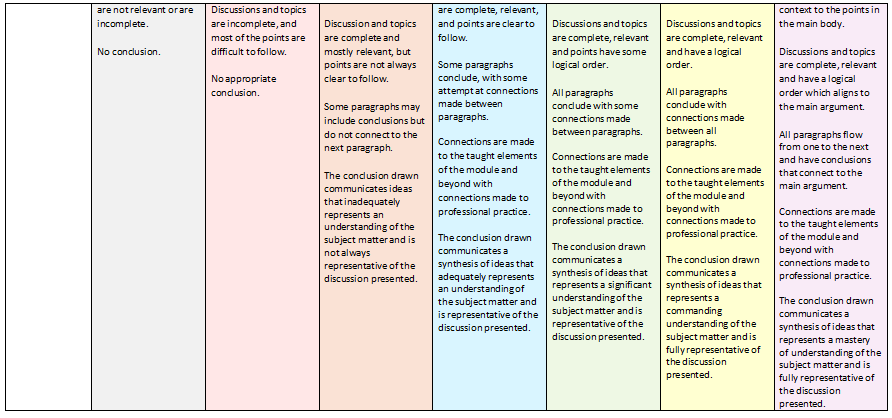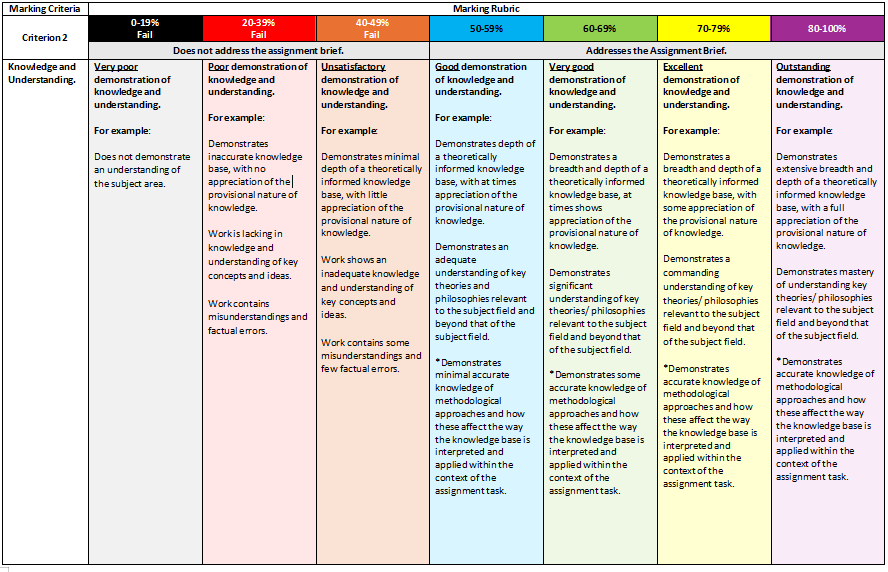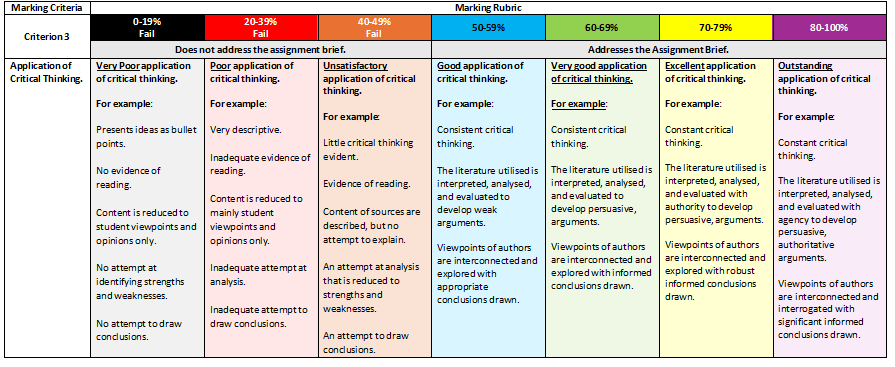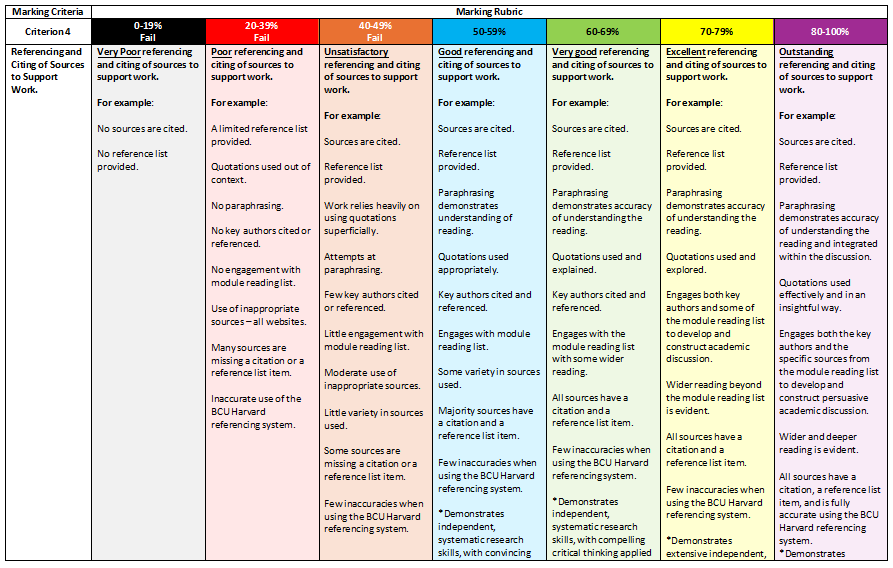| Category | Assignment | Subject | Science |
|---|---|---|---|
| University | Module Title | PHE7035 Public Health Emergency Preparedness and Response |
| Assessment Type | Coursework |
|---|---|
| Academic Year | 2024-25 |
|
Assessment(s) |
Category |
Type |
Submission Deadline |
Scope |
|
1 |
Coursework |
Poster presentation |
21st July 2025 by 3 pm |
|
|
2 |
Coursework |
Essay |
20th August 2025 |
1500 words |
Poster presentation (30%)
Submission Date: 21st July 2025 by 3pm
Learning outcome covered:
|
Learning outcome 4 |
Analyse and implement effective public health emergency response operations in order to develop and execute strategic and communication plans that effectively engage and inform the public during emergencies. |
Written assignment, 1500 words (70%)
Submission Date: 20th August 2025
|
Learning outcome 1 |
Identify and evaluate the complex nature of diverse public health challenges, and the value of a multi-disciplinary public health response |
|
Learning outcome 2 |
Demonstrate a critical understanding of differing perspectives and frameworks in public health and apply them to a variety of local, national and international health settings. |
|
Learning outcome 3 |
Critically analyse the ethical and legal dimensions of public health emergencies and evaluate post emergency recovery strategies for building resilient communities. |
Do You Need PHE7035 Assignment of This Question
Order Non Plagiarized AssignmentPHE7035 Public Health Emergency Preparedness and Response
Level 7 Module Assessment (30% of Module Grade)
Presentation format: Poster Presentation
Submission Methods: Digital through Moodle
In this assignment, you will develop a poster that demonstrates your ability to analyse and design effective public health emergency response operations. The presentations will specifically focus on strategic communications and public engagement strategies. This should address the Learning Outcome 4, and you will be asked questions about the content of your poster, so it should be comprehensive and cover all the requirements.
Your poster will be submitted both electronically via Moodle, and will as well be physically displayed in a room where a tutor will examine your work, possibly ask you questions and be graded.
a.Content and structure
|
Context of the emergency |
You should clearly identify a specific public health emergency scenario. You will need to justify your choice, and give a brief geographical and contextual background. |
|
Response operations analysis |
You should provide a detailed breakdown of the emergency response operational framework, analyse the key operational challenges, identify critical response mechanisms, and highlight resource allocation and management strategies.
|
|
Your strategic communication plan |
You should detail a comprehensive communication strategy design, clearly stating the target audience, the channel of communication chosen, and your method of engagement. Your strategy should include a risk communication strategy, public trust building strategy, and your method of managing public perception and behaviour. |
|
Critical evaluation |
Your critical evaluation should include evidence-based recommendations and potentials for improvement and innovations |
b.Technical considerations
The size of your poster should be A2 portrait orientation, and it should be clear with legible typography. You can use colours as you wish but must include the references and resources used.
PHE7035 Public Health Emergency Preparedness and Response
Level 7 Module Assessment (70% of Module Grade)
Word Count: 1,500 words
Your essay should critically analyse and examine a specific public health emergency focussing on a country of your choice. Your essay should demonstrate a level 7 critical thinking and evaluation of the emergency response, incorporating at least one of the theorical framework taught in class and consider the ethical and legal dimensions of the chosen emergency.
1.Introduction and Country Profile Requirement
You must begin your essay with a brief but focussed country profile of your chosen country, and the discussion here should consider the following:
The relevant demographic information of your chosen country, the country’s health system and structure, the socio-economic and cultural factors that could affect an emergency, environmental factors, and any other features that could affect emergency response.
2.The complex nature of public health challenges in your chosen country (Learning Outcome 1)
Here, you are required to clearly identify and describe your chosen public health emergency. You must use evidence to convincingly discuss why it is a public health emergency concern. Your discussion should also include an evaluation of the complexity of the emergency, considering the social determinants of health, environmental factors, economic factors, and the cultural dimensions.
You should then analyse and discuss the multi-disciplinary response required, drawing upon the different stakeholders involved, integration of various health sectors, and resource allocation and management.
3.Theoretical framework analysis (Learning Outcome 2)
Here, you will need to apply at least two public health theories to analyse the emergency response in your chosen country. You will need to critically evaluate and discuss how these theories illustrate understanding of the response. You may also discuss how theories apply differently in local, national and international contexts drawing on few examples. You should also analyse how theoretical frameworks influence decision making process.
4.Ethical and legal analysis and recovery strategies (Learning Outcome 3)
You should examine and discuss the key ethical challenges encountered during the emergency, and also analyse the relevant legal frameworks and implementation during the emergency. In discussing the post-emergency recovery strategies, you should consider factors such as community engagement approaches, resilience building measures, and long-term sustainability measures.
Buy Answer of PHE7035 Assignment & Raise Your Grades
Request to Buy AnswerYour grade will be based on how well you meet the assessment brief, using the marking criteria below. You are expected to meet include the key content outlined above. The grade you get will depend on how well you meet the marking criteria below. To pass at the minimum threshold at Level 7:





This assessment addresses the following learning outcomes (LOs):
|
Conditions of Progression
|
In order to achieve a pass mark for the module an overall grade of 50% must be achieved and all learning outcomes evidenced. In addition to a first attempt, there will be a second (final) attempt (all dates as above). |
|
Late or Non-Submission/ Attendance |
Assessments must be submitted in the format specified in the assessment task, by the deadline and to the submission point published on Moodle. Failure to submit by the published deadline will result in penalties which are set out in Section 6 of the Academic Regulations, available at: Please be aware that the penalties are different for re-submissions. |
|
Word Count |
The word count for this module assessment is shown under the assessment task. A +10% margin of tolerance is applied, beyond which nothing further will be marked. Marks cannot be awarded for any learning outcomes addressed outside the word count. The word count refers to everything in the main body of the text (including headings, tables, citations, quotes, lists etc.). Everything before (i.e. abstract, acknowledgements, contents, executive summaries etc.) and after the main text (i.e. references, appendices) is not included in the word count limit. For in-person assessments time limits will be applied. |
|
Academic Integrity Guidance |
Academic integrity is the attitude of approaching your academic work honestly, by completing your own original work, attributing, and acknowledging your sources when necessary. Understanding good academic practice in written and oral work is a key element of academic integrity. It is a positive aspect of joining an academic community, showing familiarity with, and acknowledging sources of evidence. The skills you require at higher education may differ from those learned elsewhere such as school or college. You will be required to follow specific academic conventions which include acknowledging the work of others through appropriate referencing and citation as explicitly as possible. If you include ideas or quotations which have not been appropriately acknowledged, this may be seen as plagiarism which is a form of academic misconduct. If you require support around referencing, please contact the Faculty’s Academic Development Department or the University wide Centre for Academic Success. It is important to recognise that seeking out learning around academic integrity will help reduce the risk of misconduct in your work. Skills such as paraphrasing, referencing and citation are integral to acting with integrity and you can develop and advance these key academic skills through the Faculty’s Academic Development Department. |
|
Academic Misconduct
|
Academic misconduct is conduct which has or may have the effect of providing you with an unfair advantage by relying on dishonest means to gain advantage and which therefore compromises your academic integrity. The procedure sets out the process we will follow, and the penalties we may apply, in cases where we believe you may have compromised your academic integrity by committing academic misconduct. The procedure and supporting information also covers use of A.I. You should make sure read the policies carefully as academic misconduct will result in loss of marks. You may be asked to attend a viva if you are referred for suspected academic misconduct where you will be asked to talk through your search strategy for the assignment and demonstrate understanding of your sources. |
|
Turnitin |
To obtain a Turnitin scan before submitting your work to your department please visit the University's ‘Turnitin at BCU’ Moodle site. Work that is submitted and scanned through this service is not stored on the main Turnitin system and this is NOT your submitted work. |
|
Extenuating Circumstances |
For further details on the Extenuating Circumstances Procedure please see the iCity page below: |
|
Where to get help |
The University has a designated student support service known as the Centre for Academic Success. Here you will find support for a range of academic skills. Likewise, you can arrange a consultation with a member of staff from the Academic Development Department based at City South Campus. You also should also review the wide range of support and help from the library. |
Hire Experts to solve PHE7035 Assignment before your Deadline
Pay & Buy Non Plagiarized AssignmentAre you stuck with your PHE7035 Public Health Emergency Preparedness and Response Assignment? Let us help! We offer professional, affordable assignment writing services that are AI-free, plagiarism-free, and delivered on time. Our team of PhD experts understands what universities expect and creates high-quality content tailored to your needs. We also offer free assignment samples so you can check our quality before booking. Our expert team provides Public Health Assignment Help that has been designed for the students. We’re available 24/7 to support you. Don’t wait until the last minute—contact us now and make your academic life easier with trusted expert assignment help!
View the solutions related of Public Health then Click here: Public Health
Hire Assignment Helper Today!
Let's Book Your Work with Our Expert and Get High-Quality Content
